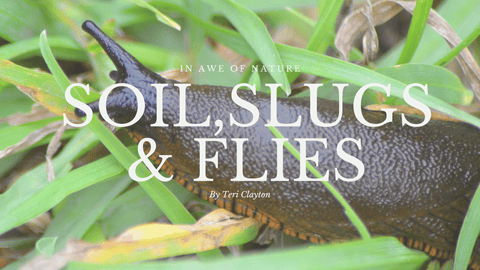Are Soil-Based Probiotics Safe? Myths, Facts, and UK Expert Insights

Are Soil-Based Probiotics Safe? Myths, Facts, and UK Expert Insights
As interest in soil-based probiotics UK continues to grow, so do questions about their safety. Online discussions can be confusing — some praise these resilient microbes as the future of gut health, while others express caution. So what’s the truth?
In this guide, we’ll explore SBO safety — what science and regulators say, how to use these supplements responsibly, and what to consider when choosing a quality product.
Understanding SBOs and Their Origins
Soil-Based Organisms (SBOs) are naturally occurring microbes found in healthy soil and plants. Historically, humans consumed them regularly through unwashed foods and direct contact with the earth. In modern life, sanitisation has limited this exposure, prompting renewed interest in supplements that reintroduce these organisms.
Common species used in supplements include Bacillus coagulans and Bacillus subtilis — both spore-forming bacteria that can survive harsh conditions and may help maintain balance in the gut. We compare their distinct properties in our guide Bacillus Coagulans vs Bacillus Subtilis.
What Research Says About Safety
Independent studies and reviews generally regard these Bacillus species as safe for healthy adults when used as directed. They have a long history of use in foods and supplements, and are included in the European Food Safety Authority’s Qualified Presumption of Safety list.
However, “safe” doesn’t mean “suitable for everyone”. People with immune compromise, serious illness, or those recovering from surgery should always seek medical advice before introducing new microbes to their system.
Addressing Common Myths About Soil-Based Probiotics
Myth 1: Soil-Based Probiotics Are Dangerous or Unregulated
In the UK, supplements are regulated as foods, not medicines, but they must still comply with trading standards and labelling laws. Brands like Microbz UK and reputable stockists such as Biome Box follow strict manufacturing and testing standards.
Myth 2: They Replace a Balanced Diet
Probiotics are not a substitute for nutrition or medical treatment. They may complement good food, movement, and sleep habits — all essential for long-term wellbeing. For broader context, see our article on holistic gut health.
Myth 3: All Probiotics Work the Same
Different strains have different roles. Bacillus coagulans is studied primarily for digestive comfort, while Bacillus subtilis has been linked to immune balance. Learn how they work together in Boosting Immunity Naturally: The Hidden Power of SBO Probiotics.
Understanding Probiotic Controversies
The growing popularity of probiotics has led to debate. Critics highlight the need for more human trials and strain-specific research. Supporters point out their long-standing safe use and the consistency of observed benefits for microbial balance.
Ultimately, probiotics are not a cure-all, but a potential tool for maintaining gut diversity — a cornerstone of health supported by emerging research. It’s essential to use them with realistic expectations and a personalised approach.
How to Choose Safe, High-Quality SBO Supplements
- Check for strain specificity: Avoid vague “proprietary blends.” Look for named strains such as Bacillus coagulans MTCC 5856.
- Look for UK or EU manufacturing: Products made under GMP (Good Manufacturing Practice) ensure quality control.
- Third-party testing: Seek supplements verified for purity and potency.
- Read reviews and transparency reports: Reputable companies share research and customer outcomes openly.
When to Seek Professional Advice
If you’re pregnant, breastfeeding, on medication, or managing a chronic condition, consult a GP or qualified nutritionist before use. In some cases, probiotic adjustments may be necessary to avoid unwanted interactions.
The Importance of Gut Microbiome Interaction
SBO probiotics interact with the existing gut ecosystem rather than dominating it. They may help improve conditions for native microbes to flourish, promoting a more balanced microbiome. This dynamic relationship is central to the idea of soil-based probiotic supplements as a part of natural gut care.
Conclusion: Informed, Balanced, and Responsible Use
Soil-based probiotics UK have shown promising results in supporting microbial diversity and digestive balance. When sourced responsibly and used thoughtfully, they can form part of a well-rounded wellness routine.
To explore transparent, third-party-tested options, visit the Microbz collection at Biome Box. You can also explore related educational guides on digestive balance, immune wellbeing, and probiotic strains.
This article is for educational purposes only and not intended to diagnose, treat, or replace professional medical advice. Always consult your GP or healthcare provider before starting new supplements.
Frequently Asked Questions
Are soil-based probiotics regulated in the UK?
Yes. While classified as food supplements rather than medicines, they must comply with UK labelling and safety regulations under Trading Standards.
Can soil-based probiotics cause infection?
In healthy adults, this is extremely rare. Strains like Bacillus subtilis and Bacillus coagulans are approved as safe by the European Food Safety Authority (EFSA).
Are soil-based probiotics safe during pregnancy?
Most brands recommend consulting a GP or midwife before use, as research during pregnancy is limited.
How can I choose a safe soil-based probiotic?
Look for clearly listed strains, third-party testing, and products manufactured under UK or EU Good Manufacturing Practice (GMP) standards.






